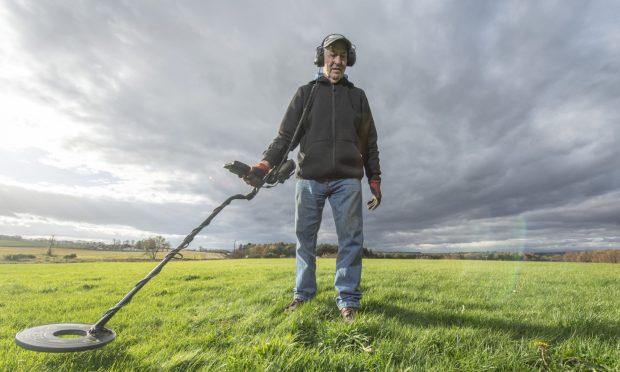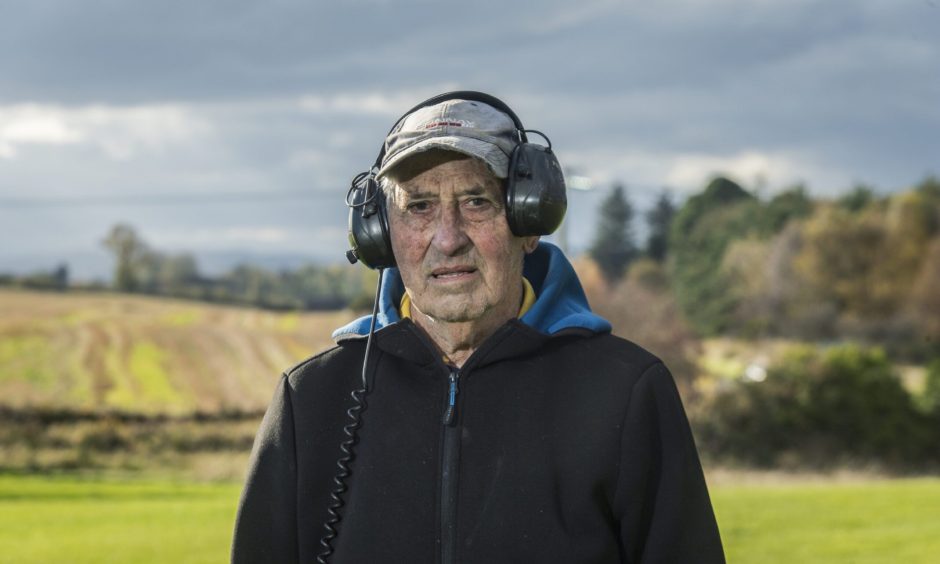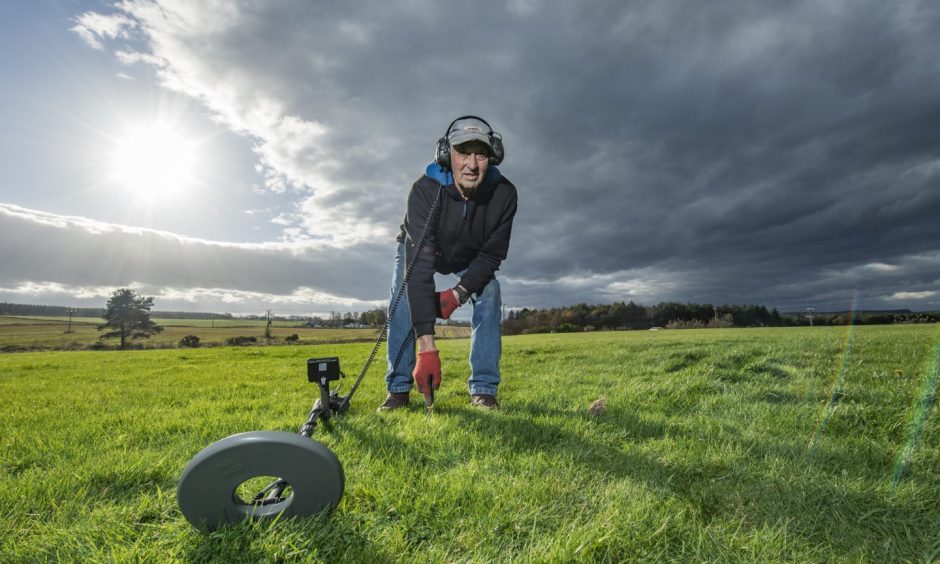In the last 20 years, Eric Soane has found thousands of coins lost by pupils in school playgrounds in and around Inverness.
Using his metal detector he has unearthed a haul worth nearly £4,000, dropped from pockets and bags, and given it all back to the schools.
But Highland Council policy has ended his hobby-turned-fundraiser on its land.
Eric, 86, has tried unsuccessfully to overturn the “silly decision”.
How did all this start?
His endeavours started by chance when he saw children from Raigmore Primary looking for a lost object in their playground.
After getting permission from the school, a search uncovered 3,500 coins worth £185.
“After that I carried on looking for more and it continued from there,” he said.
Since then he has detected at 26 schools in Inverness, Nairn, Ross-shire and Moray, working at weekends and holidays when there are no children about.
He usually covers just one school a year, but has unearthed a total haul of 36,877 lost coins worth £3654.24.
As well as loose change, he has removed rubbish, including cans shredded by lawn mowers which he said could be dangerous to children.
He said: “I hope to get this extremely silly decision reversed and I can get back to an extremely enjoyable hobby.
“Surely in times of economic restraint, even these relatively small amounts of cash should not be withheld from the schools.
“It’s just wasted if it’s left in the ground.”
Council has a ‘legal duty of care’
But Highland Council says anyone metal detecting must ensure they have landowner permission before accessing a site.
A spokeswoman said: “Unless under controlled management, the Highland Council does not permit metal detecting on land owned by the council including school grounds.
“The council has a legal duty of care to anyone entering premises under its control.
“Uncontrolled digging on sites, with unknown locations of utility services, could put metal detectorists at risk of causing self harm or harm to others and council property and therefore attract unnecessary risk to the council.”
The authority says digging holes in school grounds and not ensuring that soil is properly compacted again also leaves a potential risk of future trips and falls.
It adds: “School staff are being informed of the council’s position.”
Mr Soane said in his 20 years detecting, there have been no issues regarding unmarked utilities or the way ground has been left.
Meanwhile, it is not the end of his metal detecting.
He will continue his annual search for lost items such as jewellery after each Belladrum Festival.
In 2013, he found part of a Roman coin hoard at the festival site.
Some of the 36 denarii were discovered by Eric during a clean up of discarded tent pegs, with the rest uncovered by a dig led by archaeologist Dr Fraser Hunter.
Items still to be reclaimed
It was the first Roman coin hoard to be discovered in the Beauly area and later went on display at Inverness Museum and Art Gallery.
A sweep of the area after this year’s festival resulted in two rings being reunited with their owners.
However, he still has several other items waiting to be reclaimed, including a platinum ring believed to be worth a significant amount of money.
You might also like:
- Metal-detecting pensioner finds missing wedding rings buried deep in sand at north-east beach
- Highland beach cordoned off after schoolboy finds ‘grenades cache’ with metal detector he got for Christmas
For more Inverness news and updates visit our dedicated page and join our local Facebook group.



Conversation